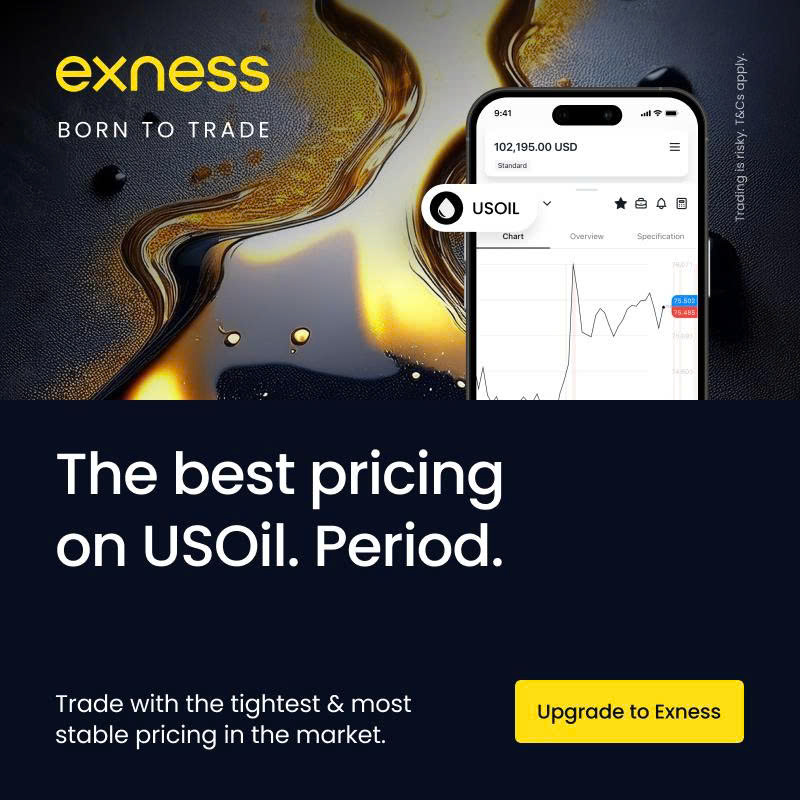
8 minute read
Is Forex Trading Legal in Kuwait? A Comprehensive Guide
from Forex Legal Kuwait
Yes, forex trading is legal in Kuwait, but it comes with a strict regulatory framework to ensure transparency and protect investors. If you’re a Kuwaiti resident curious about diving into the world of forex, you’re not alone. With Kuwait’s strong economy and growing interest in financial markets, many are exploring forex as a way to diversify their investments. But before you jump in, it’s crucial to understand the legal landscape, regulations, and practical steps to trade safely. In this guide, I’ll walk you through everything you need to know about forex trading in Kuwait, from its legality to tips for choosing the right broker, all in a to keep things clear and engaging.
Top 4 Best Forex Brokers in Kuwait
1️⃣ Exness: Open An Account or Visit Brokers 🏆
2️⃣ XM: Open An Account or Visit Brokers 💥
3️⃣ JustMarkets: Open An Account or Visit Brokers ✅
4️⃣ Quotex: Open An Account or Visit Brokers 🌐
Understanding Forex Trading in Kuwait
Forex trading, or foreign exchange trading, involves buying and selling currencies on the global market to profit from exchange rate fluctuations. It’s the largest financial market in the world, with a daily trading volume exceeding $7 trillion. For Kuwaitis, forex offers a chance to tap into global markets and diversify beyond traditional investments like stocks or real estate.
But is it legal? Absolutely, forex trading is permitted in Kuwait for both individual and institutional traders. However, it’s tightly regulated to ensure fairness and prevent financial misconduct. The Central Bank of Kuwait (CBK) and the Capital Markets Authority (CMA) are the key players overseeing this space, ensuring brokers and traders operate within strict guidelines.
The Regulatory Framework: Who’s in Charge?
Kuwait’s financial markets are overseen by three main bodies:
Central Bank of Kuwait (CBK): The CBK regulates monetary policy, ensures the stability of the Kuwaiti Dinar (KWD), and supervises financial institutions, including forex brokers. They also enforce strict currency exchange laws, which can impact deposits and withdrawals for forex accounts.
Capital Markets Authority (CMA): Established in 2010, the CMA regulates Kuwait’s capital markets, including forex trading. They license brokers, enforce transparency, and protect investors from fraud.
Ministry of Commerce and Industry (MOCI): This body ensures all business activities, including forex brokerages, comply with Kuwaiti laws.
To operate legally, forex brokers in Kuwait must obtain a CMA license, maintain sufficient capital, segregate client funds, and adhere to anti-money laundering (AML) and know-your-customer (KYC) regulations. These rules are designed to create a secure trading environment and protect you from scams or financial instability.
Sharia-Compliant Forex Trading: A Must for Many Kuwaitis
As an Islamic country, Kuwait has a significant demand for Sharia-compliant trading options. Standard forex accounts often charge swap fees (interest on overnight positions), which are considered riba (usury) and prohibited under Islamic law. To address this, many brokers offer Islamic forex accounts that:
Eliminate swap fees for overnight positions.
Follow ethical, interest-free trading principles.
Ensure transparency in trades to align with Sharia guidelines.
These accounts make forex trading accessible to Muslim traders who want to participate without compromising their faith. If this is important to you, always verify that your broker offers genuine Islamic accounts.
Can You Trade with International Brokers?
Yes, Kuwaiti traders can legally trade with international brokers, as there’s no specific local forex regulator banning it. Many Kuwaitis prefer international brokers like eToro, FOREX.com, or AvaTrade because they offer advanced platforms, competitive spreads, and higher leverage (sometimes up to 1:1000). However, there are risks to consider:
Lack of Local Oversight: International brokers may not be regulated by the CMA, meaning less legal protection if things go wrong.
Currency Exchange Restrictions: Kuwait’s strict foreign exchange laws can complicate deposits and withdrawals.
Potential for Scams: Unregulated brokers might offer unrealistic promises, like guaranteed profits or extremely high leverage, which are red flags.
To stay safe, choose brokers regulated by reputable authorities like the FCA (UK), ASIC (Australia), or CySEC (Cyprus). These bodies enforce strict standards, ensuring your funds are secure and trading conditions are fair.

✅ Trade with Exness now: Open An Account or Visit Brokers 👈
Challenges of Forex Trading in Kuwait
While forex trading is legal and growing in popularity, it’s not without challenges. Here are some hurdles Kuwaiti traders often face:
Limited Local Brokers: The number of CMA-licensed brokers is relatively small, pushing many traders toward international platforms. This can make it harder to find Arabic-speaking support or localized services.
High Leverage Risks: While high leverage (e.g., 1:100 or 1:500) can amplify profits, it also increases the risk of significant losses. The CMA has capped leverage at 1:50 for some brokers to protect retail traders, but international brokers may offer higher limits. Use leverage cautiously.
Access to Reliable Information: Many online resources are in English, which can be a barrier for Arabic-speaking traders. Additionally, unregulated sources may provide misleading advice, leading to poor trading decisions.
Internet Connectivity: Kuwait has high internet penetration, but even brief disruptions can affect trades in the fast-moving forex market. A stable connection is critical for timely trade execution.
How to Start Forex Trading in Kuwait Safely
Ready to start trading? Here’s a step-by-step guide to help you navigate the process safely and legally:
1. Educate Yourself
Forex trading is complex and risky, so start with the basics. Learn about currency pairs, technical analysis, risk management, and market trends. Platforms like AvaTrade offer robust educational resources, including eBooks and video tutorials, which are great for beginners.
2. Choose a Regulated Broker
Select a broker licensed by the CMA or a reputable international authority (e.g., FCA, ASIC). Check their regulatory status, read reviews, and ensure they offer Islamic accounts if needed. Popular choices for Kuwaiti traders include:
AvaTrade: User-friendly platform with strong educational tools and Islamic accounts.
Pepperstone: Known for low spreads and fast execution.
IC Markets: Ideal for professionals with advanced platforms like MT4/MT5.
3. Open a Demo Account
Most brokers offer free demo accounts with virtual money (e.g., $25,000) to practice trading without risk. This helps you get familiar with the platform and test strategies before using real funds.
4. Understand Tax Implications
Forex trading profits in Kuwait are taxable, and you’ll need to declare your income on your tax returns. Consult a tax advisor to understand your obligations and avoid surprises.
5. Start Small and Manage Risk
Begin with a small investment you can afford to lose. Use tools like stop-loss orders to limit potential losses and avoid over-leveraging. Discipline and patience are key to long-term success.
6. Stay Updated
Follow market news and regulatory updates from the CBK or CMA. Joining local trading communities or social media groups can also help you share strategies and stay informed.
Tips for Choosing the Right Forex Broker
With so many brokers available, picking the right one can feel overwhelming. Here are some factors to consider:
Regulation: Ensure the broker is licensed by the CMA or a trusted international regulator.
Trading Platform: Look for user-friendly platforms like MetaTrader 4 (MT4), MetaTrader 5 (MT5), or cTrader with advanced charting tools.
Fees and Spreads: Compare spreads, commissions, and withdrawal fees to maximize profitability.
Customer Support: Choose a broker with Arabic-speaking support for easier communication.
Islamic Accounts: If you need Sharia-compliant trading, confirm the broker offers genuine swap-white accounts.
Success Stories and Cautionary Tales
Forex trading in Kuwait has produced both success stories and cautionary tales. Successful traders often emphasize risk management, continuous learning, and disciplined strategies. For example, some Kuwaiti traders use automated trading systems and technical indicators to achieve consistent profits. On the flip side, many beginners face losses due to emotional decision-making, over-leveraging, or choosing unregulated brokers. Always start with a demo account and avoid brokers promising “guaranteed profits”—they’re usually scams.
Recent Developments in Kuwait’s Forex Market
In 2025, the CMA introduced stricter licensing requirements for brokers, including a minimum capital requirement of KWD 500,000 (about $1.65 million) and mandatory segregation of client funds. These changes aim to enhance investor protection and reduce fraud. The CBK also continues to monitor currency transactions to prevent money laundering, ensuring a secure trading environment.
Why Forex Trading is Popular in Kuwait
Kuwait’s high-income economy, tech-savvy population, and large expat community make forex trading increasingly appealing. With a GDP per capita of over $69,000 and a stable currency (the Kuwaiti Dinar is the world’s highest-valued), Kuwaitis see forex as a way to grow their wealth. The 24-hour market access, mobile trading apps, and potential for quick profits also add to its allure. Plus, the rise of online platforms and social media communities has made forex more accessible to young investors.
Final Thoughts: Is Forex Trading Right for You?
Forex trading is legal in Kuwait and offers exciting opportunities to diversify your investments. However, it’s not a get-rich-quick scheme. Success requires education, discipline, and careful broker selection. By choosing a regulated broker, starting with a demo account, and managing risks, you can trade confidently in Kuwait’s regulated environment. Whether you’re a beginner or an experienced trader, always stay informed about market trends and regulatory updates to make the most of your forex journey.
✅ Trade with Exness now: Open An Account or Visit Brokers 👈
Read more:

